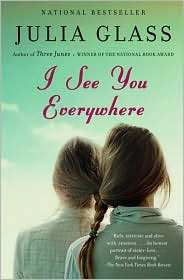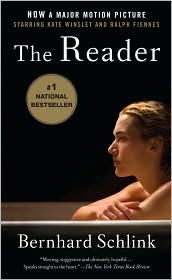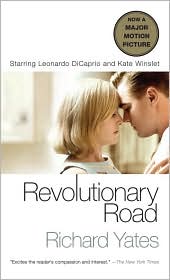The book spans 25 years and the one thing that really detracted from the story for me was the way in which the narrative jumped. I love a novel that spans decades and is told through multiple narrators, but for some reason it made this book difficult to fully sink into.
I found that I didn't truly love either Louisa or Clem as individuals, but I did love them together. Perhaps that is part of Glass's overall goal, to illustrated the interconnectedness and the interdependency the sisters had to comprise their full character. Indeed two starkly opposite sides of a whole, they together create one well-rounded entity. Alone, they are each "too much" of what they are.
While I don't think I loved it as much as I did Glass's first novel, Three Junes, which to me was resonating down to my very core. But I See You Everywhere is definitely a worth-while read and a beautiful, painful, sometimes funny, ultimately tragic exploration of the sibling relationship.
 Those Who Save Us, by Jenna Blum will never leave me. The story of the Schlemmer women (mother Anna and daughter Trudy) is a richly told and agonizingly raw account of how people both survive unthinkable cruelty and inhumanity, and how those who come after try to make peace with the knowledge that they come from a people who perpetrated such atrocities as the Holocaust on their fellow human beings.
Those Who Save Us, by Jenna Blum will never leave me. The story of the Schlemmer women (mother Anna and daughter Trudy) is a richly told and agonizingly raw account of how people both survive unthinkable cruelty and inhumanity, and how those who come after try to make peace with the knowledge that they come from a people who perpetrated such atrocities as the Holocaust on their fellow human beings.Anna Schlemmer, the daughter of an ambitious German with his sights set on impressing the leaders of the Nazi party, disgraces her father by trying to hide a Jew in the crawl space of their home. Upon being found out, she flees, pregnant with the Jew's child, to become an apprentice in a small bakery. There she gives birth to her child and covertly works with the bakery owner, Matilde, to smuggle bread to the prisoners at Buchenwald, smuggling messages from the prisoners out to the resistance.
During a turn of events that claims the life of the baker owner, Anna is visited by the Obersturmfuhrer of Buchenwald, who she believes will kill her and Trudy. Instead he takes a sick fascination in her and Anna, her sense of self unraveled to its very barest, knows what she must do to ensure her own survival and that of her daughter.
Now an old woman, Anna, has never spoken of the Obersturmfuhrer or of her life in Germany. Her daughter, Trudy, is now a middle-aged, divorced, college-professor. In her desire to further understand her mother's experience of the Holocaust (she has no information from Anna, save an old picture she found of herself, Anna and the Nazi officer), Trudy undertakes a series of oral history interviews with Germans willing to talk about their experiences in WWII. Through her interviews she encounters a variety of individuals with very different recollections of what they did and didn't know at the time of the Holocaust--some interviews renew Trudy's hope in humanity's goodness; others dash it to pieces.
As Trudy gains a deeper insight to what her mother endured, and what she accomplished, during the Holocaust, the story, and Anna's legacy come full-circle in a way that, if the books were not so beautifully and brilliantly written, *might* seem a bit hokey. But Blum's ability to weave characters with such coherence and integrity gives the story unquestionable believability.
I haven't read a book in a long time that touched me as deeply as this one.
 The New Yorkers by Cathleen Schine is an entertaining look at a neighborhood of characters, all linked in one way or another by their affection for, or loathing of, dogs. Very sort of Tales of the City by Armistead Maupin, but in New York instead of San Francisco, and with more dogs.
The New Yorkers by Cathleen Schine is an entertaining look at a neighborhood of characters, all linked in one way or another by their affection for, or loathing of, dogs. Very sort of Tales of the City by Armistead Maupin, but in New York instead of San Francisco, and with more dogs. The characters represent a plethora of personalities and mindsets: the middle-aged divorced man, the hopeless romantic "spinster" teacher, the aimless gen-Xer and the heart-broken perfectionist, to name a few. Each is lost in some way and is found through their connection to a canine companion and in some cases, each other.
Although it was not soul-touching in the same way as Those Who Save Us was for me, The New Yorkers was an entertaining and sweet look at the lives of ordinary people, going about their days in the busiest city in the world, trying not to get, or stay, lost in the shuffle, and finding a sense of self, purpose and joy in the dogs who love them unconditionally. Perhaps it is that, the sense of unconditional love, that Schine is commenting on in this novel. As humans, we rarely receive that kind of unwavering devotion from those other humans around us--maybe it is why so many of us feel so lost so much of the time.































